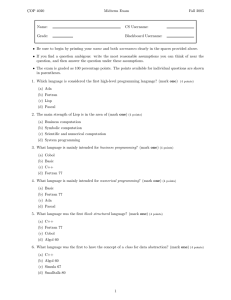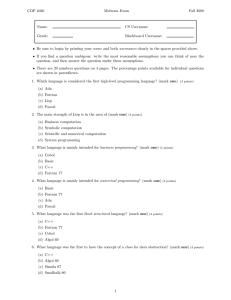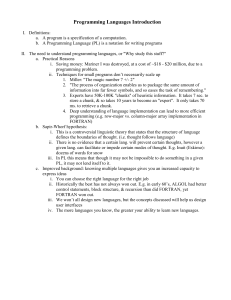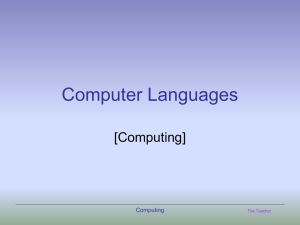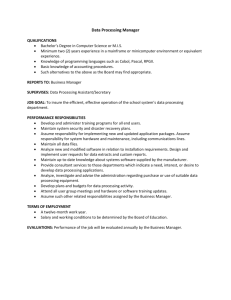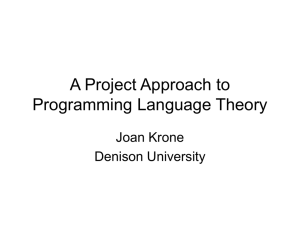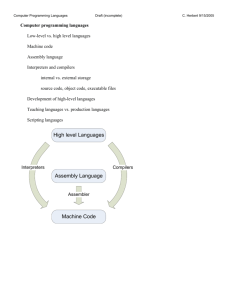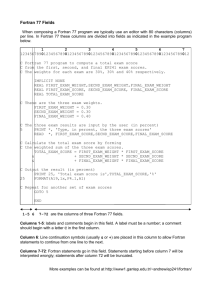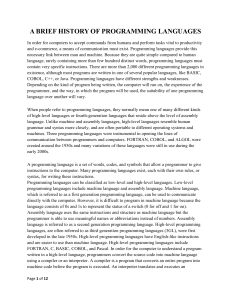Programming Languages Overview
advertisement
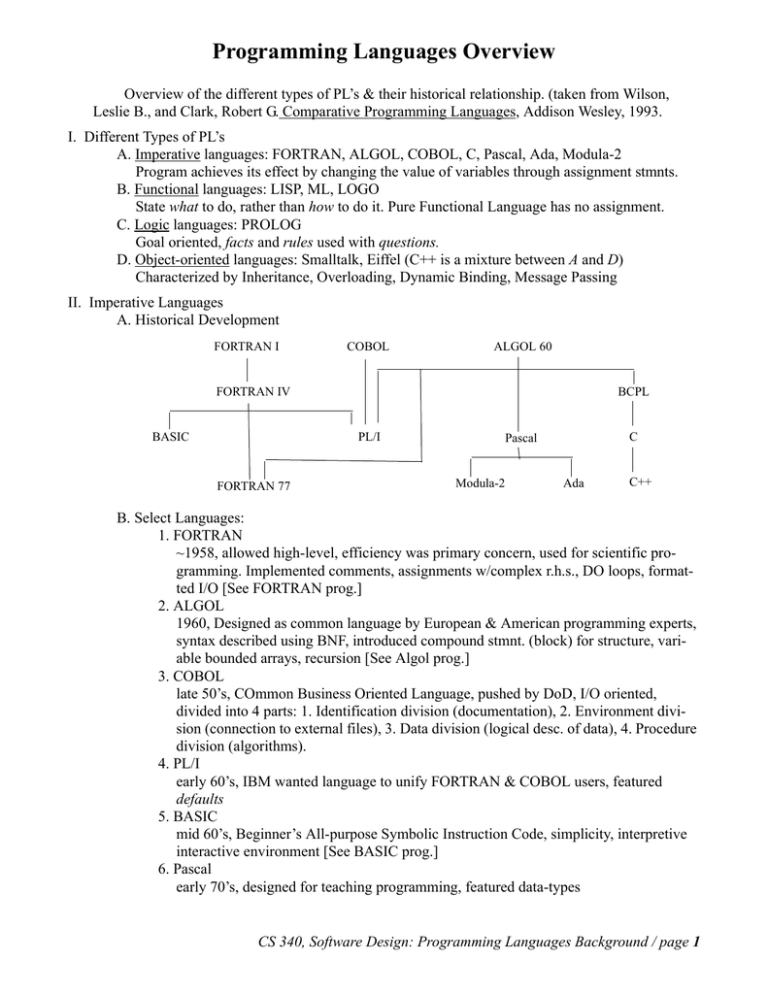
Programming Languages Overview Overview of the different types of PL’s & their historical relationship. (taken from Wilson, Leslie B., and Clark, Robert G. Comparative Programming Languages, Addison Wesley, 1993. I. Different Types of PL’s A. Imperative languages: FORTRAN, ALGOL, COBOL, C, Pascal, Ada, Modula-2 Program achieves its effect by changing the value of variables through assignment stmnts. B. Functional languages: LISP, ML, LOGO State what to do, rather than how to do it. Pure Functional Language has no assignment. C. Logic languages: PROLOG Goal oriented, facts and rules used with questions. D. Object-oriented languages: Smalltalk, Eiffel (C++ is a mixture between A and D) Characterized by Inheritance, Overloading, Dynamic Binding, Message Passing II. Imperative Languages A. Historical Development FORTRAN I COBOL ALGOL 60 FORTRAN IV BASIC BCPL PL/I FORTRAN 77 C Pascal Modula-2 Ada C++ B. Select Languages: 1. FORTRAN ~1958, allowed high-level, efficiency was primary concern, used for scientific programming. Implemented comments, assignments w/complex r.h.s., DO loops, formatted I/O [See FORTRAN prog.] 2. ALGOL 1960, Designed as common language by European & American programming experts, syntax described using BNF, introduced compound stmnt. (block) for structure, variable bounded arrays, recursion [See Algol prog.] 3. COBOL late 50’s, COmmon Business Oriented Language, pushed by DoD, I/O oriented, divided into 4 parts: 1. Identification division (documentation), 2. Environment division (connection to external files), 3. Data division (logical desc. of data), 4. Procedure division (algorithms). 4. PL/I early 60’s, IBM wanted language to unify FORTRAN & COBOL users, featured defaults 5. BASIC mid 60’s, Beginner’s All-purpose Symbolic Instruction Code, simplicity, interpretive interactive environment [See BASIC prog.] 6. Pascal early 70’s, designed for teaching programming, featured data-types CS 340, Software Design: Programming Languages Background / page 1 7. C & C++ late 70’s, combines high-level lang. w/facilities & efficiency of assembly lang., lack of type checking, operations on addresses and bit patterns. C++ has more strict typechecking, has classes & inheritence. [See C prog] 8. Ada mid 70’s, DoD wanted standard lang. for real-time concurrent embedded systems. Has packages(similar to classes), libraries, is strongly typed, exit when from loops, task facilities for concurrency, exception handling III. Functional languages: LISP, ML, LOGO Note that there is no assignment statement. See example program to find the difference between the largest and smallest of three integer numbers using a functional subset of Ada. [See Ada prog.] IV. Logic languages: PROLOG Goal oriented, facts and rules used with questions. [See PROLOG prog.] V. Object-oriented languages We will spend most of this course dealing with this CS 340, Software Design: Programming Languages Background / page 2
